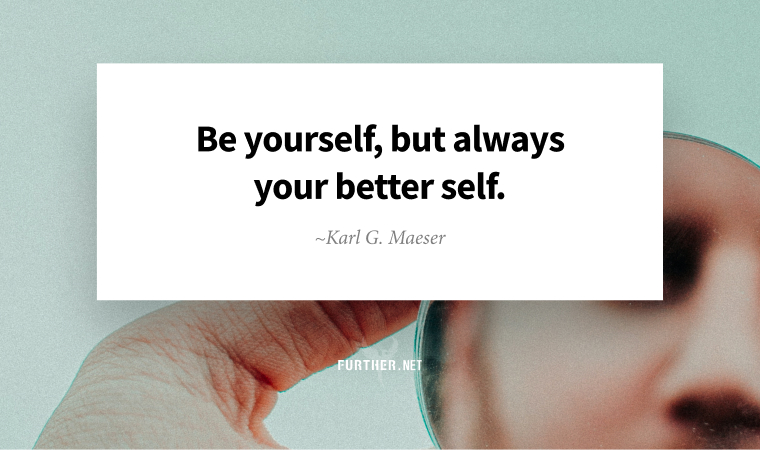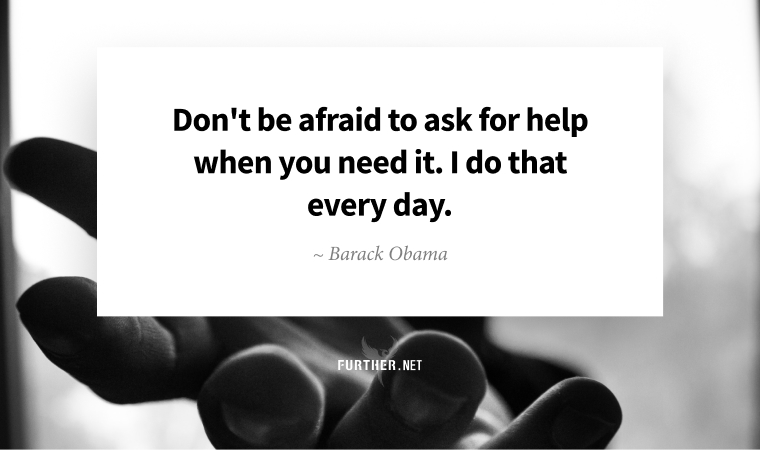
What do you want to be when you grow up?
It’s a question we ask of children, and the answers are often delightful in their innocent enthusiasm — a cowboy, an astronaut, a ballerina.
But then we actually do “grow up” and things generally take a more pragmatic turn. We’ve got to get a job, raise a family, and eventually care for our parents as they cared for us.
It’s at midlife that we often realize we’ve got more growing up to do. We experience the realization that there’s a version of ourselves that we’ve yet to achieve, and it begins to grow in importance.
Psychologist Abraham Maslow called this drive the desire for self-actualization. To actualize simply means “to make a reality of.”
In other words, you’re compelled to make a reality of the person you want to become.
Another word for this is purpose. And while we have plenty of obligations to others that make up our larger sense of purpose, we also have to make room for the process of becoming our best selves … just for our selves.
What you do in particular is not the point, nor is why you do it. The key is that you do it for yourself, without regard for what others think about it or what they’d prefer you do.
It’s all in the doing. Self actualization is an act of embodiment, which means becoming the tangible expression of an idea, value, or practice though your actions.
Long ago, Aristotle said, “We are what we repeatedly do.” If kindness and creativity are important to you, then you must be kind and creative to embody those traits.
So … what do you want to be do when you grow up?
Keep going-
P.S. New to Further? Join us here.
Muscle Fuel
One common age-related shift is loss of muscle mass, which can happen at a rate of around 3% loss of strength with every passing year once you enter middle adulthood. Making these dietary changes, along with consistent exercise, can help you build more muscle mass.
5 Eating Habits To Help Slow Muscle Aging
Midlife Disrespect
The popular conception of the “midlife crisis” was debunked years ago. But recent research shows a legit form of crisis called “intense job strain” that peaks around age 45. Of course, the article focuses on all the poor Millennials who might face this in 4 years, instead of the young Gen Xers who are dealing with it now. 🙄
Get Real
Is the housing market returning to normal? What does “normal” even mean for a market that endured both an epic meltdown and a stunning rally within the past 15 years?
Space Out
Want more time for rest, play, reading, reflecting, self-care, hanging with friends and other loved ones? The challenge is that no matter how much time we have, we are not likely to experience it as spacious, restful, joyful, and playful.
Go Ahead and Ask for Help

By Trudi Roth
Our generation sucks at asking for help. After all, it’s part of the latchkey kid credo that we take care of ourselves without complaint. But we’re not bitter… just ask Kurt Cobain:
If you ever need anything please don’t hesitate to ask someone else first.
That sums up our internal pushback barometer set to the idea that nobody cares and everyone forgets about us. (Well, that part is kinda true…)
But new research shows that we underestimate people’s willingness to pitch in, often wrongly assuming that people will be annoyed or inconvenienced. That means our stubborn commitment to being independent may be standing in the way of getting the support we deserve and even secretly desire. Time to learn how to ask for help without fear or shame.
Helps Me Helps You
Just the name of the new research article gives you a clue as to why asking for help doesn’t need to be so hard: “Surprisingly Happy to Have Helped: Underestimating Prosociality Creates a Misplaced Barrier to Asking for Help.”
In six experiments with more than 2,000 participants, people repeatedly misjudged how willing strangers were to take a photo of them at a picturesque location when politely asked. And when told to recall how it felt when they requested (and received) or provided assistance in a range of scenarios with strangers, friends, and family, the participants’ response was overwhelmingly positive.
As the lead researcher, psychologist Xuan Zhao, observed:
We feel good making a positive difference in other people’s lives. Helping makes people feel better.
This points to a phenomenon identified in the 1980s known as “helper’s high.” Aiding others is a prosocial behavior that unleashes feel-good chemistry (i.e., serotonin, dopamine). In other words, it provides the same hormonal hit as other top self-care actions, like meditation and sex.
Now that you know asking for help gives others the chance to boost their bliss, here’s how you can more easily and comfortably request support.
Helpmate
Here at Further, we’ve discussed how to set SMART goals. Wayne Baker, author of All You Have to Do Is Ask: How to Master the Most Important Skill for Success, advocates using the same method when requesting help to ensure your ask is thoughtful. So, make it:
- Specific
- Meaningful (so it’s clear to all why you’re asking)
- Action-oriented
- Realistic
- Time-bound
Plus, if it’s a big request, consider including an easy out upfront. And after you get the assistance you need, be sure to express your heartfelt gratitude. That reinforces making everyone involved feel good about the interaction — which helps a lot.
Go Ahead, Ask for Help. People Are Happy to Give It. (New York Times)
further: flashback
 INXS – Need You Tonight
INXS – Need You Tonight Kick, 1987
Okay people, you know the drill. Click over to watch the video for Need You Tonight, but also load Mediate in another browser tab. Then pull your best DJ move to blend them seamlessly together one after the other as originally released. (YouTube)
further: sharing

Further subscribers who share the newsletter with friends can gain access to our exclusive membership community Well + Wealthy with only three referrals. Get your own free weekly dose of health, wealth, travel, and happiness advice here, and find out all the details on our referral program.
Thank you for sharing Further!
